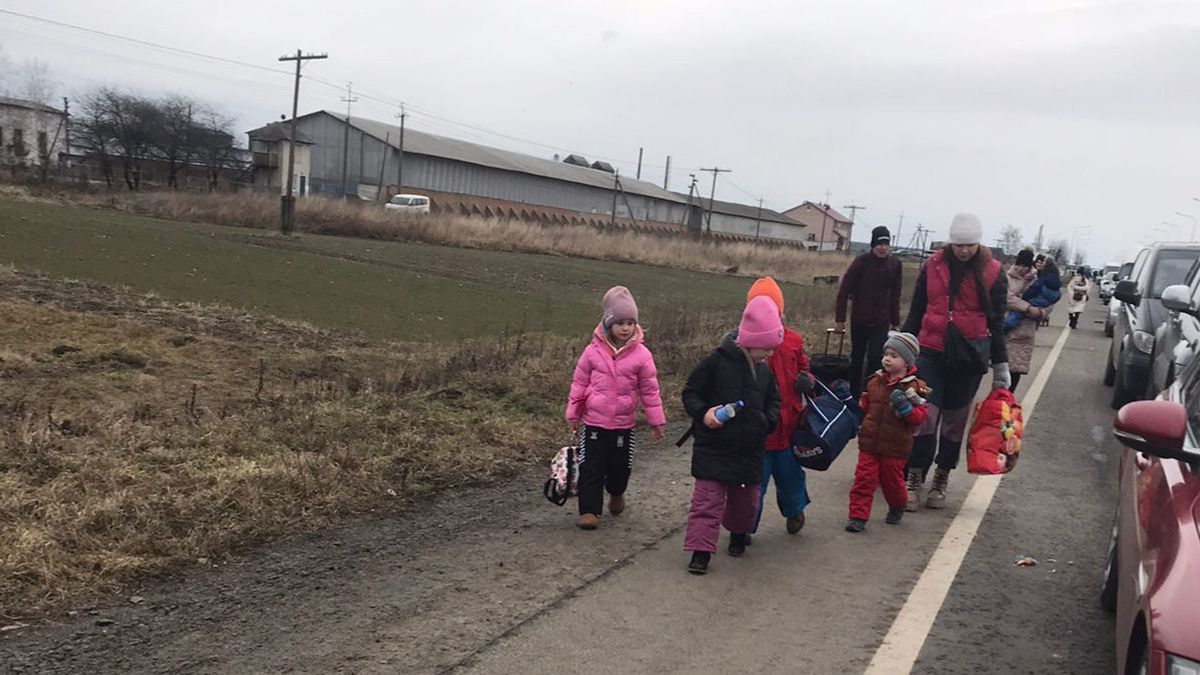JAKARTA - Russia is said to require every baby Ukrainian citizen born during their occupation as citizens of Russia, to be called one of the propaganda carried out on the battlefield.
When his grandson was born, Olha Lukina (65), rushed to the civil record office. It was one of the last offices that still provided Ukrainian citizenship for newborns south of Kherson, who was then under Russian occupation.
Baby Kateryna became Ukraine's newest citizen that day in May, born in one of the country's darkest times.
Later in the occupation, Russia required all newborns to accept Russian citizenship, said Leonid Remyga, chief doctor at Kherson City Clinical Hospital, the only hospital working in the city.
Russia occupied Kherson for eight months, until Ukrainian soldiers took him back in November. Many residents initially returned, but Kherson is now more like a ghost city because of the shooting by Russian troops across the Dnipro River.
At the beginning of the occupation, Ukrainian parents faced pressure to accept Russian citizenship for their newborns. According to Remyga's parents and Kateryna, Natalia Lukina and Oleksii Markelov, this includes prohibiting them from getting diapers and baby food for free.
This is an example of how the residents of cities in eastern and southern Ukraine, which were captured by Russian troops, must face sudden and sometimes dangerous changes in the rules and demands made by the invaders.
"When we asked for diapers, the Russians told us, 'If you come without a Russian birth certificate, we won't give you diapers'," Natalia Lukina, 42, said.
Most parents of small children, with small income during the war, receive free diapers from Russia, said Lukina's partner, Oleksii Markelov.
"Tidak ada uang satu sen," tandasnya. Reuters tidak dapat secara independen memperkuatkan pernyataan mereka.
Meanwhile, Russian intelligence agency FSB, which help enforce rules in occupied areas of Ukraine, did not respond to requests for comment on this matter.
Lukina refused to change her daughter's birth certificate, which was born two months after Russia captured Kherson.
Reuters has seen Ukrainian documentation of Kateryna, branded by Ukraine's Ministry of Justice. The ministry did not respond to requests for comment on the situation in Kherson during Russia's occupation.
"We informed (Russia) that the baby was born in Ukraine, and Ukraine is not Russia," Lukina said in an interview at her home.
The house is only 1.5 km (one mile) from the Russian-controlled side of Dnipro, where troops fire artillery at Kherson every day.
Doctor Remyga said he was still implementing Ukrainian laws at the start of the occupation, until the army dismissed him from his job on June 7.
"They are carrying out a propaganda campaign that Russia is here forever," Remy told Reuters at the hospital.
"But then FSB officers will threaten if (the family) does not receive Russian documents, they will get into trouble."
Remyga said he fell ill in June, spending a month in hospital under army surveillance. He managed to escape the following month.
He said FSB officers arrested him on September 20, handcuffed him and pulled a bag into his head, before taking him to an unknown detention center, where he was interrogated.
Officers released him in early October and banned him from returning to work in hospital, he said.
Remyga said he returned to work on November 12, the day after Ukraine reclaimed Kherson. The FSB did not respond to a request for comment on Remy's statement.
At a Ukrainian hospital, parents receive basic medical records of infant birth, but have to go to the registration office for a Ukrainian citizen's birth certificate, get citizenship.
During the occupation, many parents delayed visits to Russia-controlled registration offices, said Olena Klimenko, head of Kherson's regional registration office.
After the occupation ended, many of the parents registered their babies for Ukrainian citizenship, said Klimenko. However, he did not have the right statistics.
It's unclear how many babies accept Russian citizenship, as Russian officials record it and Ukrainian registration officials don't cooperate with them, Klimenko said.
Prior to the war, an average of 1,200 babies were born at the Kherson City Clinical Hospital per year, but the number fell to 489 births in 2022, according to Remyga.
The English, Chinese, Japanese, Arabic, and French versions are automatically generated by the AI. So there may still be inaccuracies in translating, please always see Indonesian as our main language. (system supported by DigitalSiber.id)








